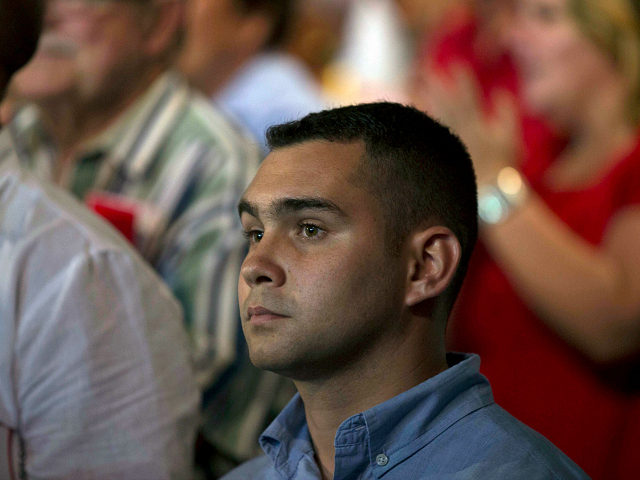Elián González, once a Cuban refugee child made famous after the Clinton administration abducted him from his home at gunpoint and sent him to Cuba, is being given significant airtime as a 22-year-old commemorating the life of dictator Fidel Castro on Cuban state television.
While Elián González has appeared in state propaganda before, the frequency with which Cuban television is interviewing him in light of Castro’s death on Friday is a new development. In multiple videos, González heralds the murderous head of state as an “immortal” superhero who will “never die.”
“When in the United States have you seen so many people crying?” González asked Cuban television on Monday. “Only in a movie, when Superman dies, would you see something like this act, and that is the appropriate comparison.”
“Superman was a fake hero,” he continued. “We, the Cuban people, are proud to have a real hero, the real Fidel. That hero had greater powers than Superman because he has the power of being invincible, of being immortal. In a movie, Superman can die. Fidel lives in the hearts of all Cubans. Fidel grows and becomes history, and Fidel will never die.”
In what appears to be pre-recorded programming, Elián told the Cuban audience the story of how he first met Fidel Castro after completing first grade.
“He gave me a copy of La Edad de Oro and a box of chocolates, and told me, ‘be careful not to eat the book and read the box,'” he recalls. “More than a president, or a great commander, he was my father, my friend, my grandfather,” he continued.
González recalls not liking Castro initially. “I was serious [towards him] at first, but you get accustomed to his presence,” he said. “It takes work because when Fidel enters a room, he takes all the air out of it. That is intimidating because it is something grandiose something incredible.”
Perhaps indicating that even the Cuban government suspects many will see through González’s indoctrination since being forced to return to Cuba, the young man directly addresses those who see his story as a tragic one in a live interview on the streets of Havana. “I know what I lived,” he tells the camera, “I don’t live an indoctrinated life, I don’t live in a bubble.”
“Fidel taught me how to think, and when I had to decide, I decided for myself and I thought for myself,” he asserts in a Cuban TV clip published by the Miami-based Cuban journalist Yusnaby Pérez.
González was 6 when his mother attempted to reach the United States from their native Cárdenas with him in tow on a makeshift vessel as balseros, the word used for Cubans who take to the high seas hoping to reach Florida. His mother died in the attempt, but he reached land after being rescued by American fishermen. He spent several months in the United States before President Bill Clinton authorized a violent raid on the family home to extract the child and force him back into the arms of the communist dictatorship.
On the fifteenth anniversary of his saga, the great-uncle who cared for him, Delfín González, warned that the Cuban government had indoctrinated his young nephew. “It is not the boy’s fault. That is where you see the manipulation of that ******* system,” he told ABC News, following the broadcast of a Cuban state interview in which Elián González demanded an apology from his Miami relatives for caring for him. “They destroy everything. They have destroyed that boy, they have him like a robot,” he lamented.
Delfín González did not live to see Fidel Castro die; he passed away in October after a car accident.

COMMENTS
Please let us know if you're having issues with commenting.